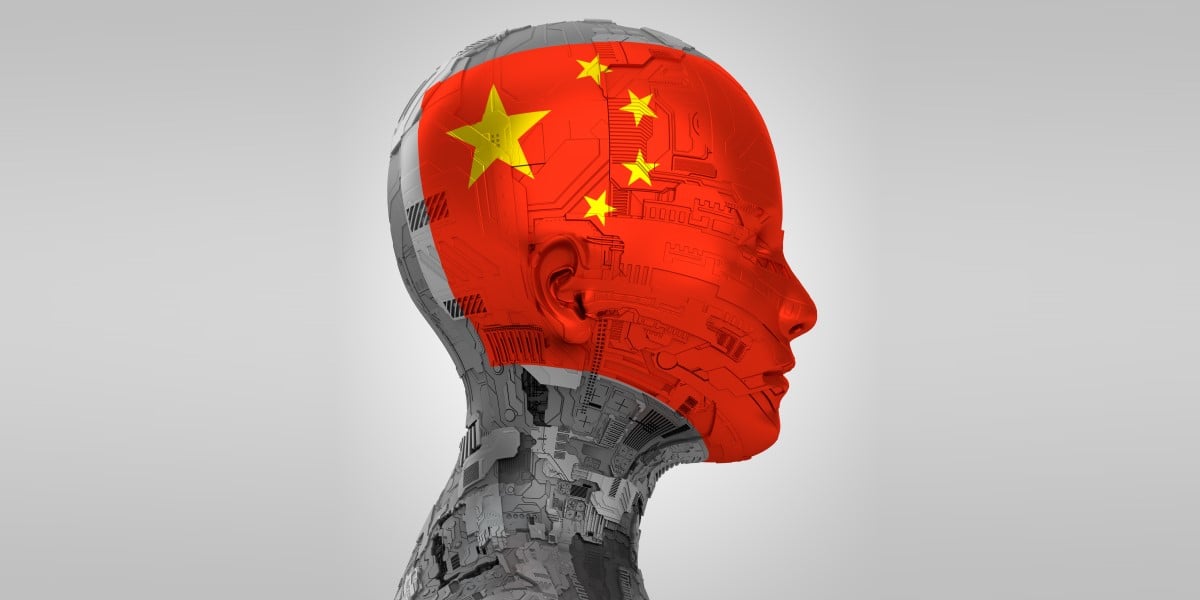China Pushes 'AI Plus' Initiative To Integrate Technology And Industry

A plan to integrate AI into industry was among the top goals China's government revealed in the annual Report On the Work of the Government delivered at its 14th National Party Congress on Tuesday.
The report details China's budget, economic plans, and future policies in line with the wishes of the Chinese Communist Party (CCP) and is delivered before the annual Congress – China's rubber-stamp Parliament – by the nation's premier.
Within the report [PDF] was a promise to develop the digital economy, which includes the launch of an initiative called "AI Plus."
Premier Li Qiang did not detail the AI Plus initiative, nor what it is expected to achieve. Chinese state-sponsored media however described the initiative as promoting "the in-depth integration of AI and the real economy by deepening the research and application of AI technology."
Beijing also promised to build smart cities, digitize the service sector, promote SME digitization, support platform enterprises to compete on the international stage, improve basic data systems, and create a nationally unified computational system.
- AMD may have failed to dumb down its chips enough to allow China sales
- German defense chat overheard by Russian eavesdroppers on Cisco's WebEx
- Chinese 'connected' cars are a national security threat, says Biden
- Alibaba Cloud cuts prices – hard – for multi-year commitments in mainland China
If the phrase "AI Plus" sounds familiar, it may be because China has previously promised an "Internet Plus" initiative back in 2015.
That aimed to "integrate mobile internet, cloud computing, big data, and the Internet of Things with modern manufacturing, to encourage the healthy development of e-commerce, industrial networks, and internet banking, and to get internet-based companies to increase their presence in the international market."
It's a task Beijing was still working on in 2020 when it slashed the cost of internet access for its local population.
Some aspects of Internet Plus succeeded: ByteDance is a top tier global social network, Xioami is a force in consumer electronics, Tencent is a player in global gaming (and owns a big chunk of Reddit), while Chinese e-commerce players continue to grow their offshore clientele.
Next, the future
On Tuesday, the National Party Congress also pledged to enhance its leadership in electric vehicles, hydrogen power, new materials, cutting-edge sector and the space industry, among others, while formulating development plans for quantum technologies and other "future-oriented industries."
"We will strengthen coordination, planning, and investment guidance for key sectors to prevent overcapacity and poor-quality, redundant development," stated the report.
China's gross domestic product increased by 5.2 percent to over 126 trillion yuan ($17.5 trillion). Among the main targets for development in the coming year is to keep GDP growth around five percent. The rate is uncharacteristically low, as the Congress typically sets goals of seven to eight percent growth.
The low target reflects the impact of international sanctions and the crisis in China's property sector. Property defaults have continued since the Evergrande Group fell into debt trouble in 2021, prompting the government to intervene as confidence falls sharply and the construction sector slows.
In its report, Beijing claimed it had "improved city-specific policies on real estate regulation, worked to lower housing mortgage costs, and ensured the delivery of housing projects." ®
From Chip War To Cloud War: The Next Frontier In Global Tech Competition
The global chip war, characterized by intense competition among nations and corporations for supremacy in semiconductor ... Read more
The High Stakes Of Tech Regulation: Security Risks And Market Dynamics
The influence of tech giants in the global economy continues to grow, raising crucial questions about how to balance sec... Read more
The Tyranny Of Instagram Interiors: Why It's Time To Break Free From Algorithm-Driven Aesthetics
Instagram has become a dominant force in shaping interior design trends, offering a seemingly endless stream of inspirat... Read more
The Data Crunch In AI: Strategies For Sustainability
Exploring solutions to the imminent exhaustion of internet data for AI training.As the artificial intelligence (AI) indu... Read more
Google Abandons Four-Year Effort To Remove Cookies From Chrome Browser
After four years of dedicated effort, Google has decided to abandon its plan to remove third-party cookies from its Chro... Read more
LinkedIn Embraces AI And Gamification To Drive User Engagement And Revenue
In an effort to tackle slowing revenue growth and enhance user engagement, LinkedIn is turning to artificial intelligenc... Read more

